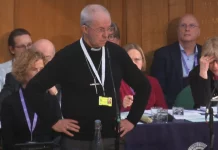The events in Israel and Gaza have presented the world with a clash of political ambitions of the most intense kind, bathed in the deeply emotive murder and rape of civilians, extending to the burning and slaughter of babies.
But they have also presented the world with a clash of ethical systems. The Muslim protagonists in Gaza have long been willing to use their own civilians as human shields, with the intention of provoking Israelis to rage, and to provoke them also into the collateral killing of Gazan women and children.
The latest incursion into Israel implemented a strategy of doing the maximum inhuman harm to Israeli civilians, and particularly to women and children, with the intention of pushing the Israeli army into revenge attacks on the civilians in Gaza.
When Israel warns the civilians in Gaza to abandon the city in order to pursue the terrorist leaders of Hamas, Hamas strenuously urges them to stay. This whole strategy depends on the Israelis killing Palestinian civilians in revenge as they level Gaza. The intention is to enrage the Islamic world and galvanise a pan-Islamic response to wipe out Israel.
While the politics have a stark simplicity to them, neither the ethics nor the religious background shared the same simplicity. The ethics of Islam and Judaism, particularly relating to forgiveness and revenge, differ considerably. The religions also understand the nature of God very differently, with Yahweh being knowable and Allah unknowable. The religions appear not only complex, but inaccessible to the different/other sides in this war of attrition, information and religion.
Listening to pundits from the left like Alistair Campbell and Rory Stewart set out to describe in succinct compressed narratives the historical claims of the conflict, there is no sense at all of the claim, let alone the legitimacy of the claim of the Jews to have been given the land of Israel by divine covenant. Only that they were temporary occupiers two and a half thousand years ago.
To the left, Jews are simply and only a recent illegitimate colonial force guilty for dispossessing Arabs of Palestine.
At the heart of the political impasse is the refusal of Arab Palestinians to accept any political compromises that allowed for the existence of Israel. They are determined on its extermination. Little mention is made of this in political punditry, but the failure to acknowledge this and its theological rationale makes both conversation and ethical analysis impossible. Some minimum grasp of the theological history is essential.
Embedded in both the Koran and the Hadith is the record of Mohammed with his experience of Jews and Judaism. Like much of the present conflict it was both political and theological at the same time. Only by grasping its essentials can the non-negotiable anti-semitism of Islam be understood.
Few non-Muslims know much of the history of early Islam, and the two distinct stages of Mohammed’s career as hybrid prophet and warlord. But his encounters with the Jews were central and critical to the way it developed.
At the simplest level, as Mohammed fought for his life and his success, he entered into a series of complex alliances. In the earlier part in Mecca, relying on the Jews in particular, he collaborated and forged alliances. The earlier part of the Koran reflects this benign approach to both the Jews and Christians he encountered, and it is there that we find the verses of religious collaboration. But after being driven out of Mecca into Medina where he established his role as a successful warlord, his attitude changed.
The Jews caused him offence in two ways. Firstly, they posed a theological problem to the “revelation” of the Koran.
Mohammed combined a paradoxical admiration for the prophetic charisms of the Jews with a certain degree of jealously. Why had the Jews been favoured with the outpouring for prophetic voices they experienced for a millennium? Why had God ignored the Arabs? He presented himself as the final prophetic voice in the Jewish tradition of prophesy (which included Isa, the name for Jesus in the Koran) but alas the most authoritative.
Muhammad became increasingly hostile to the Jews as his claims and ambitions developed. He grew to perceive that there were irreconcilable differences between their religion and his, especially when the belief in the authenticity of his prophetic mission became the criterion of a true Muslim.
The Jewish community challenged “the way in which the Koran appropriated Biblical accounts and personages, for instance, its making Abraham an Arab and the founder of the Kaa’bah at Mecca”. The Jews denied his claims. Muhammad responded by accusing them of intentionally concealing its true meaning or of entirely misunderstanding.
Needless to say, the theological clashes over his claims to represent Biblical figures in the Koran were not restricted to Abraham. They included Moses, David, Elijah, Ezekiel, Solomon, Jesus and Mary. Both Jews and Christians disowned the characters that Mohammed imported into the Koran from the Old and New Testament. The names were the same, but their characters, roles and words were very different. Their use appeared to be a mixture of plagiarism and revisionism, and both communities objected and rejected the claims of the Koran to be authentic revelation.
This act of theological repudiation was deeply offensive to Islam, and in the case of Judaism was compounded by an early conflict called The Battle of the Trench.
In 627 the Jews of Banu Qurayza were accused of conspiring with the Meccan enemies of Mohammed, and Islamic forces attacked, defeated and captured them. In a notorious episode Mohammed ordered between 400 and 800 men to be beheaded.
The antipathetic relationship between Jews and Muslims, always complex, began badly and, since Islam means submission and the Jews have been disinclined to surrender the revisionist history of their identity to Mohammed, continued to get worse.
In the Hadith the antagonism is codified with verses such as: “You will fight against the Jews and you will gain victory over them. The stones will say: ‘Oh slave of Allah! There is a Jew hiding behind me; so kill him’.”
The Koran contains the verse, “Surely Allah has cursed the unbelievers and has prepared for them a burning fire.” (Koran 33:64)
Any selection of Koranic verses ought to be accompanied by a commentary which recognises there are benign verses to be found there too. The difficulty is that the violent ones are predominantly nearer the end and the principle of Koranic interpretation, abrogation, gives precedence to later over earlier verses.
The conflict in Palestine and the competing claims to the land that set Muslim against Jew arise from each side having a set of wholly different histories and theologies.
Leaving aside the Gordian knot of their competing complexity, the Islamic view has hardened into hatred. A theological exploration of the spirituality of hatred and forgiveness as the two faiths practice them is also needed, beyond the simplicities of the origins described here.
In a conflict where babies are beheaded and civilians are deemed to be soldiers, a whole series of spiritual, ethical and metaphysical considerations require examination.
The depth and intractability of the conflict is well reflected by the comments of the Salafi Egyptian Islamic scholar and author, Sheikh Muhammad Hussein Yaqoub:
“If the Jews left Palestine to us, would we start loving them? Of course not. … They would have been enemies even if they did not occupy a thing. … Our fighting with the Jews is eternal, and it will not end . .. until not a single Jew remains on the face of the Earth. … As for you Jews, the Curse of Allah upon you, you pigs of the earth!” (Al-Rahma TV, 17 January 2009)










